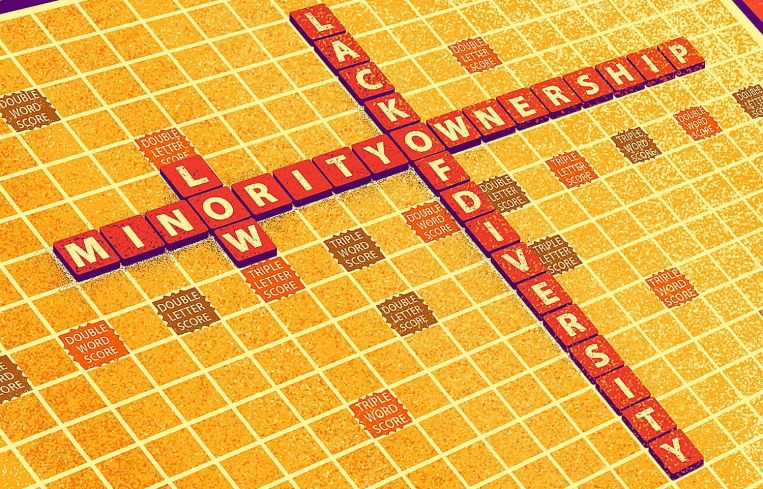Sunday Summary: Real Estate’s Diversity Problem Is a Data Problem
By The Editors April 4, 2021 9:00 am
reprints
This week, the trial began of Derek Chauvin, the former Minneapolis police officer charged with second- and third-degree murder and second-degree manslaughter of George Floyd.
Floyd’s death ignited the country in protests for racial justice, and it caused many in the real estate industry to stop and think about questions of racial and gender disparities in this business, including Commercial Observer.
Ten months later, the dispiriting news is: there is still not nearly enough data out there to even know what the problems are.
What’s the pay gap? We don’t really know.
How many people of color work in the business? Again, the answer is hazy. (There’s slightly better data on the gender gap.)
What are companies doing in terms of recruiting and retention? It depends on whom you ask.
There are some things that can be gleaned from just about any public company and that’s what their board of directors looks like. Only 96 out of 700 board members of some 68 real estate companies are persons of color, according to a recent Bisnow survey; and, in 2019, the Knight Foundation found that only 2 percent of real estate businesses were minority-owned and 2 percent owned by women.
And, if you want to read beyond just industry data, there are interesting individual stories and things that are happening.
On Saint Patrick’s Day, Goldman Sachs’ Urban Investment Group saw the ground break for the new National Urban League headquarters, a $242 million facility in Harlem that Goldman Sachs contributed some $188 million toward.
There have been individual efforts by developers like Chris Senegal to bring new housing to historically Black neighborhoods, such as Houston’s Fifth Ward, while being mindful of the negative effects of gentrification; and Baye Adofo-Wilson, who is redeveloping Hinchliffe Stadium, a historic New Jersey ballpark that was once home to Negro League teams like the New York Black Yankees and New York Cubans, into a $94 million mixed-use community.
Diversity in real estate, however, goes well beyond individual developers, or even multibillion-dollar global services firms; questions about housing and hiring are going to be laid out before the next mayor of New York. CO also looked at the candidates in the field and what their positions are on this.
State of the market
Some good news this week: office leasing picked up considerably!
According to Colliers, leasing volume in Manhattan increased 9.4 percent from the previous quarter. Of course, this is still well off from where leasing was transacting in 2019, and availability is at record highs … but, baby steps, people.
And, while landlords and real estate people have generally adopted a panic/freakout posture toward tech companies never again returning to their offices, the big boy in the room (Google) has sent signals decidedly in the other direction: employees can start working from the office this month, and they’re planning a companywide office opening in September, unlike some companies we could name. (Cough … cough… TWITTER.)
Google is not alone. Microsoft had a “soft open” for its Redmond, Wash., headquarters last week (although, apparently some 70 percent of their 160,000 workers want the option of being able to work remotely), and Facebook and Uber are also making plans to return to headquarters.
But the really big news this week was the Biden administration’s $2.3 trillion infrastructure rollout, which will include $621 billion for transportation improvements nationwide and, for New York and New Jersey readers, yes, the Gateway rail project.
The private sector is thinking big, too.
Later this month, Two Trees will get its first public hearing about its “River Ring” residential high-rises it wants to build on the site of the former Con Ed plant on the Williamsburg waterfront. (The 1.3 million-square-foot project was designed by none other than Bjarke Ingles. Fancy!)
Not doing anything for Easter?
For those who have no plans this Easter and want to relax at home, may we recommend the Netflix documentary, “The Last Blockbuster”?
This is a topic we’ve written about before. The Bend, Ore., location was still serving its customers, even during the height of COVID-19, and it’s still going today.
Happy Easter!
Correction: An earlier version of this post incorrectly identified Derek Chauvin as a former Milwaukee police officer rather than a former Minneapolis police officer.

![Spanish-language social distancing safety sticker on a concrete footpath stating 'Espere aquí' [Wait here]](https://commercialobserver.com/wp-content/uploads/sites/3/2026/02/footprints-RF-GettyImages-1291244648-WEB.jpg?quality=80&w=355&h=285&crop=1)

